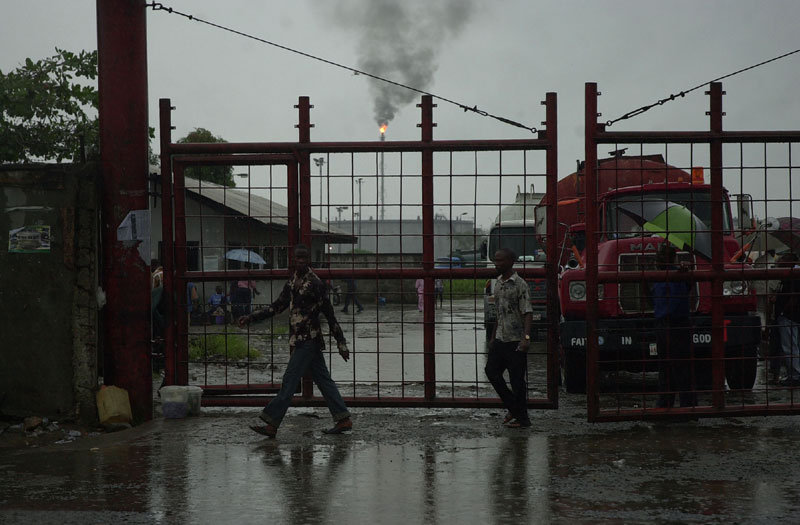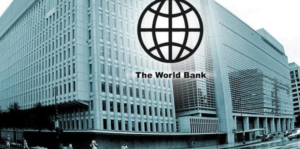(This essay was written on December 8, 2011)
A subsidy is one of the fiscal policy instruments of government. Through fiscal policy instruments, governments aim to pursue macroeconomic management. Through oil subsidy[1] (paid to importers of refined oil), the Nigerian government aims to make petroleum products (PMS and kerosene) available to Nigerians at affordable and regulated prices.
Oil consumption in Nigeria has increased steadily over the years. Nigeria’s oil consumption is projected to average 3.90 million barrels/day in 2011 (Nigeria Oil & Gas Report, 2011). With only four refineries (combined capacity of 445,000 bpd (Oyabure, 2011)) and actual outputs that usually peak at 75%, Nigeria has had to rely on the importation of refined petroleum. The subsidy paid on the imported refined oil, unfortunately, does not considerably benefit the needy Nigerians it is meant to benefit.
My idea for taking the benefits of oil subsidy to the highest number of Nigerians[2] is the CUTE plan (Cost reduction, Usage reach, Tax, and Energy enlightenment).
I went through the government’s exciting Subsidy Reinvestment & Empowerment program (SURE). I believe many Nigerians are against the removal of oil subsidy because similar government initiatives have failed in the past. If the government desires to avoid the upheaval that will surely follow the removal of the subsidy, it will have to re-strategize and make subsidy removal a gradual process. In the meantime (short-term}, the government can focus on taking the benefits of the reduced subsidy[3] to needy Nigerians (using the CUTE plan) while also working on winning the trust of Nigerians by implementing part of the SURE plan. The benefit of this is;
- In the short term, needy Nigerians will benefit from oil subsidy.
- The government will be able to assess its capacity to implement the SURE plan.
- Nigerians will be able to understand that removing oil subsidy and believing in the government is ironically the greatest benefit of oil subsidy.
Here are the CUTE strategies.
Check subsidy fraud and cost, then use saved funds to promote energy enterprise in rural communities:
How can government check subsidy fraud and cost?
- Through a Subsidies and Related Palliative Measures legislation with strict punishment for offenders. It should then mandate the EFCC or the special fraud unit of the police to investigate the famed Cabal, identify saboteurs of our refineries and try them in a court of law.
- In the importation of refined crude, the existence of middlemen leads to a duplication of cost. The government should allow only importers who import directly from the foreign refineries i.e. at refinery gate price in the exporting country or use the cost incurred by the favored importers as a benchmark for subsidy payments.
- Investigate and implement strategies to check accumulation of port and related charges like demurrage, chattering rates, etc.
- Finance and implement a master plan to restore our refineries to full capacity and build more.
How can the economic viability of rural communities be spurred using saved funds? In line with the theme of this essay, the answer to this question must strongly relate to the use of oil and oil products. Thus, I recommend
- Establishment of small and medium scale petrochemical industries in rural communities. Through the use of subsidized oil as raw materials, we can create more rural jobs and reduce rural-urban migration.
- The use of some of the saved funds to provide subsidized generators to needy rural businesses.
- Promotion and sponsorship of rural enterprises and entrepreneurs that use oil as a core input.
Usage Reach – Pioneer mobile filling stations in disadvantaged communities: Low demand prevents private entrepreneurs from establishing filling stations in many rural communities. My investigation revealed that the few filling stations in many of these communities hoard fuel and sell at exorbitant prices in the black market, to make more profit. An NNPC mobile filling station that visits some rural communities, perhaps twice weekly, will help deliver subsidized oil to more Nigerians.
Tax – Introduce an oil subsidy tax on high-income earners: Assume we group earners in the high-income bracket. Then we tax a group based on average or expected oil usage (factoring in any other conditions that might apply). Revenue earned can be used to implement some of the initiatives above.
Enlightenment – Campaign to check the dependence of the rich on subsidized fuel: That fuel comes cheap is perhaps the reason the rich do not patronize other energy technologies which they can afford. Government can take on the enlightenment campaign without legislation. This will be focused on enlightening the rich on the other available and affordable energy technologies. Government can also legislate to restrict the use of fuel-consuming equipment like generators to specific hours of the day in some settlements (excluding businesses). To assuage the effect of such a measure, the government can connect them to retailers of the other energy technologies (solar, inverters, etc). Subsidy saved (effort must be made to estimate its value) can be rolled into the Education Trust Fund (which can then be committed to cheap student transport schemes), extending subsidy benefits to students.
I was concerned about how realistic my plan is, so I decided to conduct a survey. I divided my familiar Facebook friends into three groups; High-income earners, gainfully employed, and students. The questions I put across to them ranged from ability to pay for unsubsidized oil, openness to subsidy tax, and openness to cheap campus transport schemes as subsidy benefits. The high earners were 50% in support of aspects of the plan that affected them while the gainfully employed and students were 75% in support.
God bless Nigeria.
Bibliography
National Assembly. (2011). The Mace News.
Nigeria Oil & Gas Report. (2011). 2011 BMI forecasts. Lagos: Nigeria Oil & Gas.
Oyabure, E. (2011). Analysis Of Fuel Subsidy Removal. Sahara Reporters. www.saharareporters.com
[1] Estimated at N1.3 trillion annually (National Assembly, 2011).
[2] Rural dwellers, students and disadvantaged communities.
[3] Due to gradual hike in prices.


